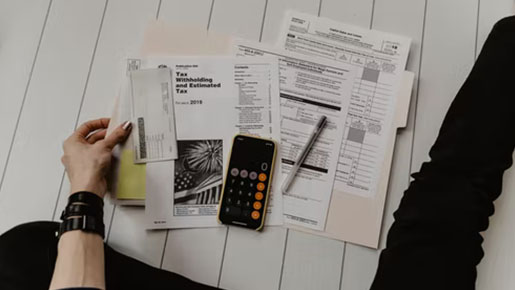As a business owner, you know that you are responsible for paying taxes on your business’s money. The taxation system in the UK is pretty straightforward and has been designed to be easy to follow, but if you have a high volume of transactions, it can become complicated. To maintain good relations with the UK tax authorities and avoid fines and penalties, you should make sure that you file all tax returns correctly and on time.

Here’s how to properly handle your business taxes.
1. File All Taxes On Time And Pay What Is Owed
You should file your taxes as early as possible after the end of one tax year and make sure that you pay any outstanding amounts before the due date (usually April 30th). If you don’t have time, it will help to work with accountants at Suretax to file your business taxes and ensure that you avoid all penalties and fines. Even if you don’t owe money to HMRC, it’s essential to file a return; if you fail to do this, then you could face hefty fines at the very least. You can find more information about filing your first Self Assessment on the HMRC website.
2. Keep Track of All Income and Expenses During a Tax Year
At the beginning of each tax year, you should create a spreadsheet to document all income earned by your business, including money earned from credit card transactions, PayPal or Stripe transfers, and any cash earned through in-person sales. It would help if you also accounted for expenses related to operating your company, such as rent payments for commercial space, design services, and other business purchases. Ensure that you keep paper records of all expenses to protect yourself against disputes with the IRS or HMRC.
3. Register For Self Assessment
If your business generates more than £59,000 in taxable income per year, you will have to file Self Assessment tax returns. This means that you will be required to fill out the necessary forms and send them to HMRC yourself by January 31st of the following year. You can register online or by phone; doing it online is much faster and easier than calling HMRC. When writing, the first thing you need is your Unique Taxpayer Reference (UTR), which you can find on any letters from HMRC about your taxes. Once registered, two types of VAT returns will need to be completed: the VAT Return and the Late Payment Penalty (LPP) Return.
4. File The Right Type Of Taxes
You will need to pay several different taxes as a business owner, but they all work in the same way. You can file your return online or by post; it doesn’t matter which method you choose. The first page of your tax return will ask for personal information about you and your business, such as address and contact details, national insurance number, and account details from one of the approved banks. Once this page has been filled out, several pages will require more detailed information about your company’s taxation position from the current tax year. You will need to include a reference number from a previous section before continuing with the next portion of the form on each of these pages.
5. File Any Additional Forms Necessary
In addition to filing a tax return, there may be other forms that you will need to fill out. For example, if your taxable turnover is over £5 million, you will have to file a Supplementary Form detailing all of your expenses and losses for that year. If your business owes less than £2,000 in taxes, it won’t be necessary to file an Employer’s Return; however, any accounts payable above this amount will require additional paperwork. You don’t want to find yourself in trouble with the IRS, so make sure that you keep good records of all financial transactions throughout your career as a business owner.
6. Keep Excellent Records
The best way to avoid falling into an unfortunate tax situation is by keeping good records throughout the year. Make sure that you save all receipts from purchases and expenses, especially those related to office supplies, advertising, and equipment. If your business uses a spreadsheet program such as Microsoft Excel, you can create several different files containing information about all of your financial transactions. You should keep this information for at least six years past the tax year in question, as HMRC will most likely want to check through it.
If you follow the six steps outlined above, you should avoid any significant problems with HMRC. You can ensure that your business remains in reasonable legal standing through proper record-keeping and timely tax filing. If you keep good records, proving that your taxes are paid will be easy. Remember, failing to file a tax return on time can result in severe penalties and interest; paying out more than you need is better than not paying at all.


